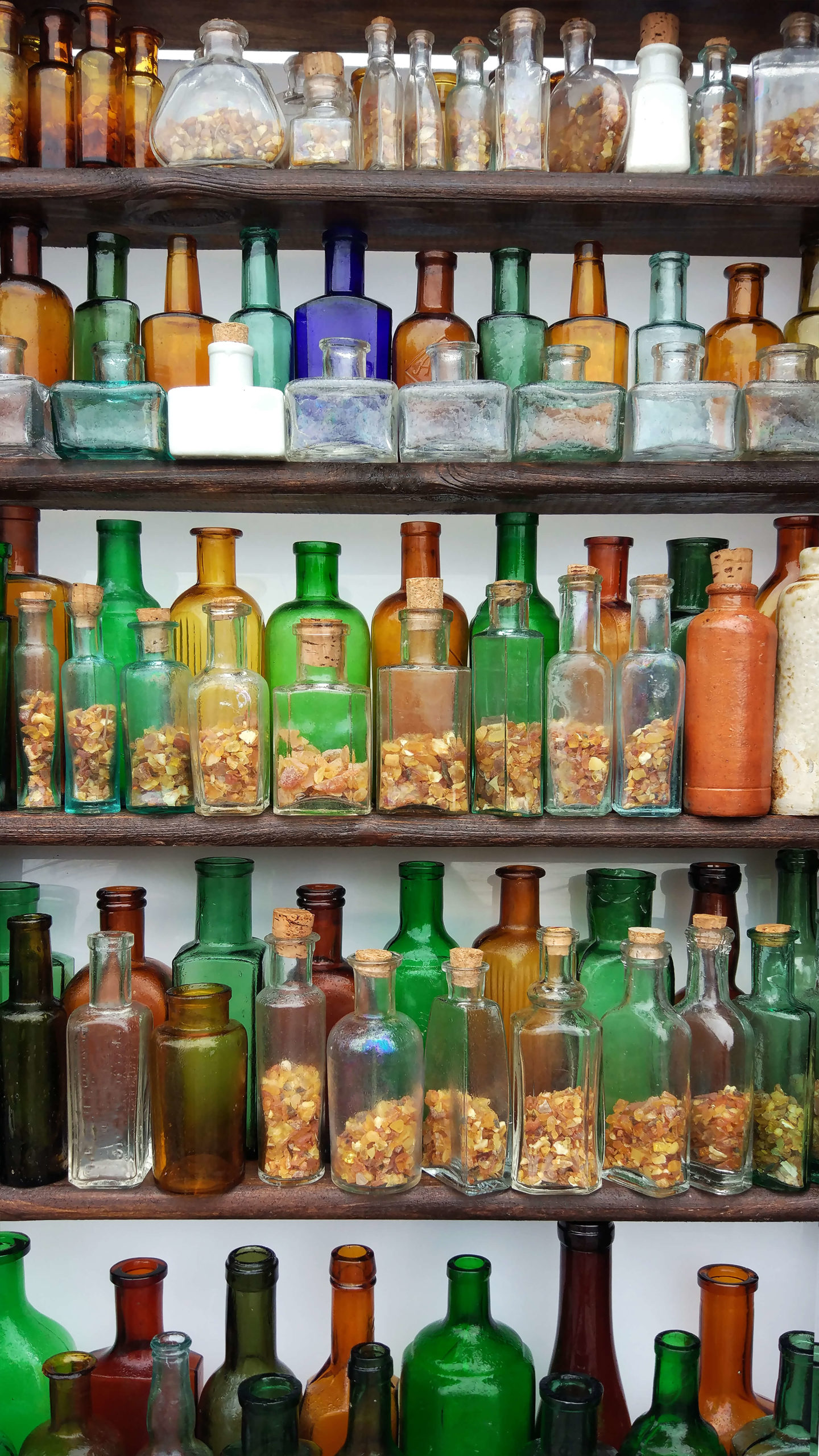Recycled Glass Countertops
Recycled glass countertops have made their way into the world of interior design and into kitchen and bathroom remodeling projects. They are an alternative option that offers consumers a green, environmentally-friendly substrate with a unique twist on the style. Before deciding if they are a good fit for a kitchen or bathroom space, take a few minutes to learn a little more about their composition, and the pros and cons of owning recycled glass countertops.
Types
There are several different variations of recycled glass countertops based upon the different materials used to construct them. The glass is the common element amongst all of the different forms, with the variety stemming from the different substrates mixed with the glass to form the solid surface.
Terrazzo countertops are chip-based and the most common form of recycled glass countertops. Pieces of recycled glass are mixed with a binding agent to create a solid surface. Typically, these binding agents are either cement or resin. The ratio of glass to binder varies in the different products depending on the manufacturer but almost every recycled glass countertop is made from a minimum of three-quarters glass chips.
Recycled glass countertops can also be made in a homogenous form that looks like a solid piece of glass. They are much different in style than the terrazzo countertops as they look like the standard glass countertops except some or all of the glass is made from recycled content.
Advantages
Consumers love recycled glass countertops for a couple of different reasons. One of the biggest draws is the fact that the recycled glass would have otherwise be headed to a landfill. While there is some controversy over the eco-friendliness of the concrete and resin used as binding agents, they are still useful in keeping glass waste from going to the dump. They are also loved because of their unique style and composition. A variety of glass colors and sizes can be mixed into a piece creating a one of a kind look for a consumer; resins and cement binders can also be tinted to change their hue. The glass chips provide some depth and translucence to the countertop adding visual interest to the design space.
Pricing for recycled glass countertops varies depending on the manufacturer. For the most part, recycled glass countertops are comparable to quartz, granite and lower end marble countertops making them affordable for consumers looking for a solid surface counter.
Terrazzo products made with a resin binder offer added simplicity in terms of maintenance. The resin used is a type of plastic resulting in a non-porous surface that does not need to be sealed and is quite stain resistant.
Disadvantages
If concrete is used as the binding agent in the countertops, the concrete part of the counter can be etched by acidic substances such as vinegar, citrus, red wine. To prevent this from happening it’s necessary to seal your countertops prior to use and then regularly during their life span. Sealing them will also keep the concrete from soaking up colored liquids and staining.
When resin is used as the binding agent, it creates a nonporous surface that requires little maintenance. On the flip side of this, the resin material cannot be polished as nicely as granite or marble making in impossible to achieve the high gloss shine that can be attained on other solid surfaces.
One of the biggest drawbacks to recycled glass countertops, whether they use resin or concrete for the binder, is the ease in which the glass pieces can chip out or break. This is especially the case on the edge or corner of the countertops. When pieces chip out or corners break off it is really difficult to repair the damage; in many cases, the section of the counter must be replaced instead.

Conclusion
Recycled glass countertops are finding a strong foothold amongst the competing solid surfaces available for kitchens and bathrooms. Their unique style and colors options make them attractive options for consumers looking to create a unique design. They do come with disadvantages though, so it’s important to know the pros and cons of recycled glass countertops before investing in them.







